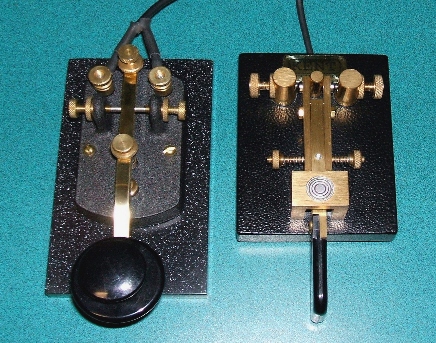
|
|

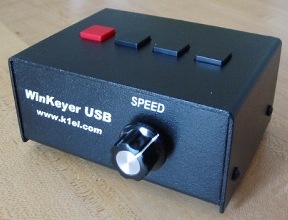
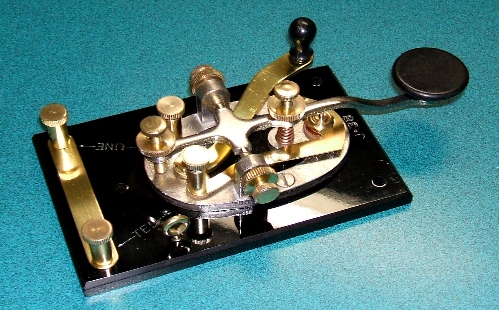
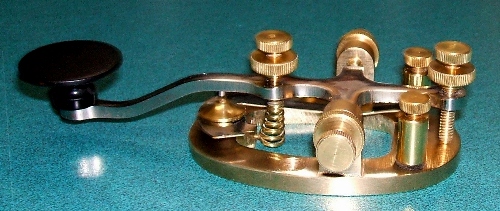
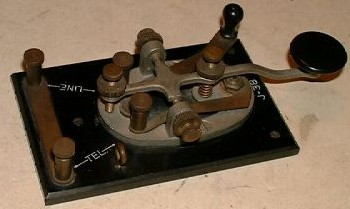
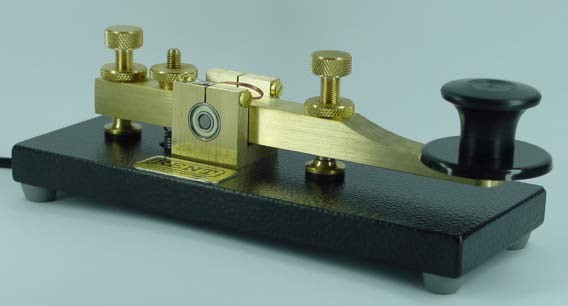
W4WDA CW PAGE |
I have always been intriqued by morse code. I watched old westerns as a kid and always wanted to know what the telegraph ops were sending. After passing the Novice and Technician written exams in 1999, I stopped at Radio Shack on the way home and purchased their last set of code tapes, close out priced at $2.99. I passed the code test 3 weeks later, but spent another year just listening to code before I had my first CW QSO. I have since logged about 5000 CW QSO,S, and am pretty comfortable at 20 to 25 WPM, can work 30 to 35 WPM on my good days. Always happy to QRS, I usually keep both a paddle and straight key connected. I prefer a single paddle non iambic paddle, and usually use an external keyer. For a period of about 75 years, morse code was the ONLY means of high speed communication available throughout the USA and the world. Despite new technologies,its still one of the most efficient, with minimal hardware requirements,will get through when nothing else will. No computer required to de-code, only the human mind. It's still a lot of fun and I hope it never dies. |
Another WW II Era Key, the Signal Electric Company R-48 "Standard Key" . Also made in large quantities, but near mint examples are hard to find. This one is all solid brass, very high quality construction. Signal Electric also produced electric fans and other items, but a big part of their business was CW keys. This one was made prior to 1952. Up until the mid 1950,s, keys such as this one were readily available at most any local Hardware Store or Radio Supply Store, in a variety of models. |
On the left is a Nye Viking "Speed-X" straight key. First produced by Les Logan,then E.F. Johnson, still produced today and cast in the original forms by Nye Viking. Very nice feel and action, very affordable. On the right is the Kent SP-1 single paddle key. Typical English craftsmanship and quality, its my favorite. Both get a lot of use at W4WDA. |
World War II Era J-38 key by American Radio Hardware. The J-38 was manufactured by at least 3 different companies for the US Army Signal Corps. Produced in huge quantities, it may well be the most popular and sought after straight key of all time. Very nice feel and balance, it was used only as a training key and never saw field use. Still plentiful, but nice examples like this one are getting rare. This one had a heavy coat of tarnish and nicotine when I purchased it, but it was all original, complete, and the price was right. It cleaned up even better than I had hoped, and I believe it has actually had little, if any use. The Lionel Company also made J-38,s, just a little fancier than the ARH version but mechanically the same key. Mint Lionel J-38,s bring premium prices, if you can find one. I think I actually prefer the ARH version. |
The K1EL PIC based memory keyer, I built my own from one of the kits. Pretty easy to assemble, worked first time. Draws its power from a USB cable or internal batteries. Software allows one to re write the Eprom and tailor the speed, weighting, ratio, etc., to your own personal tastes. It works great and is a real bargain, very high quality at a most affordable price. I plan on building another one next winter. |
Under constuction, I will add more as time permits. |
Kent KT-1 professional hand key. Big, heavy and loud. Available only direct from Kent Engineers. |
ARH J-38 Before cleaning. |